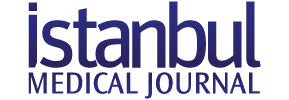ABSTRACT
Introduction
Recent research has revealed that exposure to toxins and substances like cannabis, opium, heroin, and tramadol can inhibit the growth of lymphocytes. One of the key factors identified is the impact of probiotics on decreasing and managing inflammation in individuals affected by poisoning. This study examined the impact of probiotic treatment on interleukin-6 (IL-6) and IL-10 levels in opioid-poisoned patients.
Methods
This randomized clinical trial included 70 patients with opioid poisoning who were admitted to the poisoned intensive care unit for 6 months. Patients were randomly assigned to two intervention groups that received oral probiotics or a control group that received placebo. Data collected were analyzed using IBM SPSS version 22 software.
Results
The intervention group had methadone (28.6%) and tramadol as the most common causes of poisoning, whereas the control group had tramadol (45.7%) and methadone (28.6%). There was a noticeable decrease in Acute Physiology and Chronic Health Evaluation scores in the intervention group before and after the intervention, whereas no significant difference was observed in the control group. Significantly, the levels of IL-6 and IL-10 were lower in the probiotic group than in the control group.
Conclusion
Probiotic use improved the condition of patients and decreased IL-6 and IL-10. This shows the positive effect of probiotics as an adjunctive treatment in opioid-poisoned patients, improving the condition of the patients’ immune system.
Introduction
Acute poisonings pose a major risk of death and create difficulties for emergency departments (ED) in many countries. The majority of cases treated in the ED are due to self-poisoning, with antidepressants, stimulants, street drugs, anti-histamines, and anti-convulsants being the substances that have led to severe outcomes in the past decade (1). Approximately 40% of individuals who come to the ED with intoxication are hospitalized, and on average, 1.5-3.7% of poisoned patients require admission to the intensive care unit (ICU) (2).
Research has shown that people who were poisoned and required admission to the ICU exhibited higher levels of high sensitivity-C-reactive protein (hs-CRP), leukocytes, neutrophils, and monocytes, along with increased RBC scatter within one day of exposure to a foreign substance (3). Interleukin-6 (IL-6) is a well-known cytokine that plays a role in preserving body equilibrium. When the body’s balance is disturbed due to infections or tissue injury, IL-6 is rapidly produced, assisting in the body’s protection against these sudden pressures by initiating acute phase and immune reactions (4). It has been confirmed that the levels of IL-6 change in cases of poisoning from substances like carbon monoxide, organophosphates, paraquat, and lead (5-8).
Probiotics are tiny organisms that offer health benefits to the host when provided in adequate amounts. Currently, they are utilized to address dysbiosis by aiming to rebalance the gut’s microorganisms and modify the disturbed intestinal microbiota through specific, yet not fully comprehended, mechanisms of action (9). The immune system is influenced by the gastrointestinal microbiota through the creation of substances that stimulate immune cells and possess immunomodulatory and anti-inflammatory properties. The impact mentioned is caused by the interaction between probiotic bacteria and epithelial cells, dendritic cells, monocytes/macrophages, and lymphocytes (10). Probiotics primarily work by regulating the immune response of the host. The results of the meta-analysis and clinical trials suggest that probiotic supplementation may be linked to lower levels of inflammation markers, such as CRP, tumor necrosis factor-alpha, IL-6, IL-12, and malonedialdehyde. However, while different probiotic supplements have been shown to be beneficial, there are no consistent data on which bacterial strains are most effective, the optimal dosage, and the rate of effectiveness (11-13).
Lately, probiotics have been employed to complement the treatment of specific poisonings, including acetaminophen, lead, and alcohol poisoning, and have demonstrated positive outcomes (14-16). The goal of this study was to examine how probiotic treatment affects IL-6 and IL-10 levels in ICU-admitted critically ill patients poisoned with opioids.
Methods
The study was conducted as a double-blind randomized clinical trial involving the examination of 70 individuals admitted to the poisoned ICU of Loghman Hakim Hospital from November 2022 to April 2023 due to opioid poisoning. Convenience sampling was used to select patients without age or gender restrictions. The inclusion criteria were patients who were admitted to the ICU and received enteral nutrition for at least seven days. The exclusion criteria were patients who had been in the ICU for a duration of fewer than 7 days, intestinal obstruction, renal failure, pancreatitis, short bowel syndrome, or a history of chemotherapy. Patients were randomly assigned to their respective groups using a black and white beads pattern. Patients with black beads received probiotics.
The intervention group received two probiotic capsules (manufactured by Zisttakhmir company from Iran) containing probiotic elements (Lactobacillus casei, Lactobacillus acidophilus, Lactobacillus rhamnosus, Lactobacillus bulgaricus, Bifidobacterium breve, Bifidobacterium longum, Streptococcus thermophilus) as one serving size, along with prebiotic elements such as Fructo-oligosaccharides, Lactose, Mg stearate, and talc via a nasogastric tube one hour after antibiotic administration, every 8 hours for 7 days. The control group received placebo using the same administration method and schedule as the probiotic capsules. The patients were followed up 6 weeks after the last probiotic or placebo intake.
Demographic information (age, gender and type of toxic substance) and the results of clinical tests, such as the IL-6 and IL-10, Acute Physiology and Chronic Health Evaluation-II (APACHE II) score, blood acidity, blood urea nitrogen level, creatinine level, lactate dehydrogenase, creatine phosphokinase, and blood sugar levels, were recorded before and after treatment in the two groups.
Compliance with Ethical Guidelines
Prior to participating in the trial, all patients or their legally eligible decision-makers were required to complete a consent form. Furthermore, permission was obtained from the legal guardians of patients aged below 16 years. The researchers followed the ethical guidelines outlined in the Declaration of Helsinki and ensured the confidentiality of patient information. Patient consent was obtained, and a consent form is available upon request.
The Research Ethics Committee of Shahid Beheshti University of Medical Sciences approved this study (approval number: IR.SBMU.RETECH.REC.1400.299, date: 15.08.2021). The trial was registered with the Iranian Registry of Clinical Trials (IRCT) (code: IRCT20210720051946N5).
Statistical Analysis
The data were analyzed using IBM SPSS software version 22 (IBM Corp, Armonk, New York, USA). The normal distribution of the data was evaluated using the Kolmogorov-Smirnov test. Then, central and descriptive indices were calculated and reported. Depending on the distribution of samples in the statistical population, parametric tests, such as independent t-tests and paired t-tests, or non-parametric tests like chi-square test, were utilized. A significance level of p<0.05 was applied to all variables.
Results
Table 1 shows the demographic information and results of the preintervention tests. Of the 70 patients who participated in the study, 59 were male. Among the male participants, 29 received probiotics as part of the intervention group and 30 were included in the control group. The average age of the intervention group was 37.42±14.1 years, and in the control group, it was 33.94±15.4 years. There were no significant differences in age and gender distribution between the two groups. The intervention and control groups had an average hospitalization duration of 7.3 and 7.9 days, respectively. The most common cause of poisoning in the intervention group was methadone (28.6%) and tramadol, whereas in the control group, it was tramadol (45.7%) and methadone (28.6%) (Figure 1).
Table 2 explain the results of the tests after the intervention. There was no significant difference in the levels of IL-6 and IL-10 before initiating treatment between the two groups. Following the intervention, the intervention group exhibited an average IL-6 level of 9.15±0.93 pg/mL, whereas the control group exhibited an IL-6 level of 10.9±1.5 pg/mL. A notable disparity was noted between the two groups (p=0.0001). Furthermore, there was a notable disparity in the levels of IL-10 between the intervention and control groups, with levels measuring 11.57±2.01 and 14.43±2.45 pg/mL, respectively.
Before the intervention, a notable contrast was noted in the APACHE II indices between the two groups. The probiotic group had a higher average score (22.29 vs. 19.26), indicating a more severe illness and higher risk of mortality. After the intervention, no significant difference was observed between the two groups. However, the paired t-test revealed a significant contrast between before and after the intervention group, with a decrease in APACHE scores. In contrast, no significant difference was observed in the control group before and after the intervention (Table 3). There were no significant differences in other parameters between the two groups before and after treatment.
Discussion
The aim of this research was to examine the effects of probiotics on IL-6 and IL-10 levels in individuals who have experienced poisoning. The findings indicate that probiotics have a beneficial effect on lowering IL-6 and IL-10 concentrations in ICU patients with poisoning. The most common causes of poisoning in our study were methadone and tramadol.
Previous research has suggested that extended heroin abuse and higher substance doses can result in extensive inflammation and elevated levels of pro-inflammatory cytokines like IL-6 (17).
IL-6, a member of the pro-inflammatory cytokine group, stimulates the production of various proteins that contribute to immediate inflammation and also has a significant impact on the growth and specialization of human cells (18). A study on the utilization of probiotics in individuals with rheumatoid arthritis indicated that probiotics can have a beneficial impact by decreasing the levels of IL-6 (19). Research on professional athletes has indicated that probiotic supplementation can decrease the levels of IL-6 in their bodies (20). Similarly, in our study, the consumption of probiotics decreased the level of IL-6.
IL-10 is primarily known for its anti-inflammatory, inhibitory, and self-regulating properties. It acts as a potent regulator that helps control and resolve inflammation via autocrine and paracrine pathways (21). A comprehensive analysis of the impact of probiotics on inflammatory markers demonstrated a notable increase in IL-10 levels in the bloodstream, indicating an increase in anti-inflammatory cytokines following probiotic intake (22). However, our research found a notable reduction in IL-10 levels following probiotic treatment.
Study Limitations
Our study has some limitations. The small number of samples makes it difficult to generalize the results. We only examined opioid-poisoned patients, and the effect on other poisonings was not investigated. We investigated inflammatory and anti-inflammatory ILs. Examining more members of each group and adjusting factors can improve results.
Conclusion
Our study ultimately showed that in people who have been poisoned, the use of probiotics decreases the levels of inflammatory IL-6 and anti-inflammatory IL-10. This suggests that probiotics have a non-specific impact on the suppression of ILs. Additional research with a larger sample size and exploration of the upstream pathways may help to further elucidate the mechanism.



